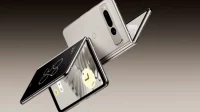In a bold move signaling China’s tech giants’ entry into the electric vehicle (EV) sector, Xiaomi revealed its inaugural electric car, the SU7 sedan, just days after Huawei introduced its own electric SUV, the Aito M9. These unveilings underscore the growing aspirations of Chinese technology companies to compete in the rapidly expanding EV market.
While renowned for their prowess in manufacturing smartphones and consumer electronics, both Xiaomi and Huawei have recently pivoted towards automotive ventures. Xiaomi had previously announced a substantial $10 billion investment over the next decade to establish a subsidiary dedicated to smart EVs.
During the SU7’s launch event, Xiaomi’s CEO Lei Jun articulated the company’s ambitious vision, aiming to establish itself as one of the world’s top five automakers within the next 15 to 20 years. Lei emphasized Xiaomi’s commitment to crafting vehicles that rival the quality of established luxury car brands like Porsche and Tesla, declaring their aspiration to create “a dream car as good as Porsche and Tesla.”
Despite acknowledging the formidable challenges of entering the automotive industry, Lei expressed confidence in Xiaomi’s ability to deliver a product on par with Tesla’s Model S and Porsche’s Taycan Turbo. Mark Rainford, an automotive industry commentator, lauded Xiaomi’s offering as “compelling,” predicting its strong appeal in the Chinese market due to its impressive performance and seamless integration with Xiaomi’s ecosystem of devices.
Moreover, Xiaomi’s foray into the luxury car segment signifies a strategic shift towards capturing a premium market share, challenging perceptions of the brand primarily as a consumer electronics manufacturer. While the company did not disclose the SU7’s pricing, Lei hinted at a premium positioning.
Huawei’s simultaneous entry into the EV market with the Aito M9 SUV further intensifies competition in China’s burgeoning automotive sector. Priced competitively starting at 469,800 yuan (approximately $66,500), the Aito M9 boasts spacious interiors and premium features, including a projection screen aimed at providing a cinematic experience without inducing motion sickness, massage-equipped seats, and double armrests for enhanced passenger comfort.
These launches come amid a fiercely competitive landscape in China’s auto market, characterized by price wars and high inventory levels. Huawei’s recent electric sedan release, designed to rival Tesla, underscores the company’s determination to establish a significant presence in the EV industry, mirroring Xiaomi’s strategic ambitions.
As China solidifies its position as the world’s largest auto market, the entry of tech giants like Xiaomi and Huawei adds new dimensions to the competition, promising innovative offerings and reshaping consumer expectations in the evolving electric vehicle sector.




